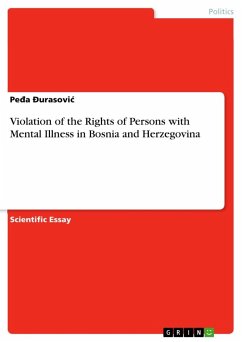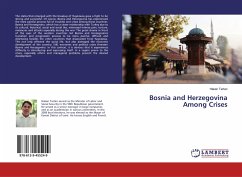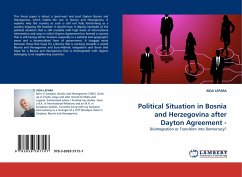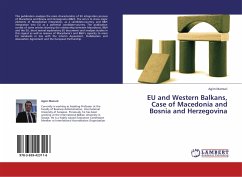
Multinational Federalism in Bosnia and Herzegovina
Versandkostenfrei!
Versandfertig in 1-2 Wochen
177,99 €
inkl. MwSt.
Weitere Ausgaben:

PAYBACK Punkte
89 °P sammeln!
In 1995 none of the political parties representing the peoples of Bosnia preferred a federal option. Yet, Bosnia became a federal state, highly decentralised and with a complex institutional architecture. This solution was imposed on them by international actors as a result of peace negotiations following the Yugoslav wars. Political parties in post-war Bosnia were not willing to identify with or accept the federation. The international community intervened taking over key decisions and so Bosnia and Herzegovina became the first state to experience a new model of federalism, namely 'imposed fe...
In 1995 none of the political parties representing the peoples of Bosnia preferred a federal option. Yet, Bosnia became a federal state, highly decentralised and with a complex institutional architecture. This solution was imposed on them by international actors as a result of peace negotiations following the Yugoslav wars. Political parties in post-war Bosnia were not willing to identify with or accept the federation. The international community intervened taking over key decisions and so Bosnia and Herzegovina became the first state to experience a new model of federalism, namely 'imposed federalism' and a new model of a federal state, that of the 'internationally administered federation'. By combining comparative politics, conflict analysis and international relations theory Soeren Keil offers a unique analysis of federalism in post-Dayton Bosnia and Herzegovina. By exploring this model of 'imposed federalism' not only does this study greatly contribute to the literature on developments in Bosnia and Herzegovina it also re-evaluates comparative federalism in theory and practice. This study also offers important conclusions for similar cases, both in the Western Balkans region and the wider world, where international involvement and federalism as a method of conflict resolution in diverse societies becomes ever more prevalent and important.













